Bob Barr Sworn In As New Pinelands Commissioner
Cape May Contingent Tries to Change Conservation Conversation at Commission
While activists sing Kumbaya, Cape May faction ready to rumble
[Update below]
These Cape May boys don’t waste time.
They think they’re on a roll and they’re in a hurry to send a message to the Pinelands Commission loud and clear.
Bob Barr – Gov. Christie’s retaliatory replacement for Commissioner Robert Jackson who opposed the controversial South Jersey Gas Co. pipeline – was sworn in today at the Pinelands Commission.
While Kumbaya was the message of the day from the harsh critics of Barr’s nomination, despite that fact, Barr still managed to start off on the wrong foot.
The wrong foot was the transparent display of political pressure brought to bear on the Commission from fellow Cape May interests Barr is aligned with.
The tactics were so crude that there was little nuance in the message sent: the Cape May delegation is here and we’re going to be heard and get what we want.
Those kind of political stunts may carry the day in Cape May County politics, but they have no relevance to Pinelands Commission deliberations.
Let me be specific.
It is well known that Barr has a close personal relationship with and was a staffer to Cape May Senator Van Drew, his sponsor. Van Drew is leading the fight to get the Commission to reconsider the pipeline vote and approve it. Strike one.
But it is not so well know that Barr served as Treasurer of the Cape May County Democrats and handled political donations from unions and others publicly advocating for the SJG pipeline. Strike two.
What has not been discussed at all, and is of relevance given today’s political show, is proposed legislation sponsored by the Cape May District #1 delegation: Sen Van Drew (S2125) and Assemblyman Andrzejczak (A3257 [2R]):
This bill, as amended, provides that a recreational use meeting the conditions set forth in the bill would be allowed as a low intensity recreational use on lands that are subject to a Pinelands development credit deed restriction and located within an agricultural production area in the pinelands area.
These floor amendments specify that youth soccer would be considered a recreational use that would be allowed as a low intensity recreational use if it meets the conditions set forth in the bill.
Barr is close to those Legislators and Tuckahoe Sod Farm and parents with their soccer playing kids on display as political props who spoke today. Strike three.
The irony is that prior to Barr’s arrival, Executive Director Wittenberg had already caved into the pressure being asserted by the Cape May delegation – through Senator Lesniak and the Senate Economic Development Committee where the Van Drew bill resides, the Assembly passed their version – and agreed to develop a “pilot program” and provide some flexibility in response to the Tuckahoe Sod Farm soccer dispute that triggered the bill.
So, it was overkill and inappropriate, particularly on Barr’s swearing in day, to have Cape May parents show up with their kids to create the appearance that the Pinelands Commission was taking college soccer scouting and scholarship opportunities away from Cape May kids.
And it was equally gauche for Tuckahoe Sod Farms to appear and testify about how those youth soccer tournaments are such a great marketing tool for their sod.
They pitched shameless emotional and private special interest economic arguments, untethered to the Pinelands Comprehensive Management Plan (CMP) or the public interest.
An older woman from Jackson also appeared and talked about her retirement dreams being taken by a rezoning plan that would reduce her “development rights”.
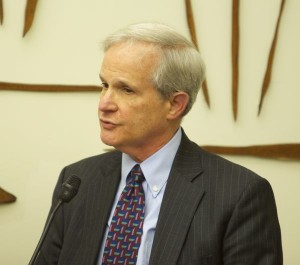
Mr. Gross is environmental counsel to the New Jersey Builders Association and general counsel to the Shore Builders Association of Central New Jersey.
And, for the coup de grace, perhaps at the invitation of Executive Director Wittenberg, who is savvy and knows how to play the political game with the best of them, Michael Gross, environmental Counsel to the NJ Builders Association – an A Team shark, for sure – made a special guest appearance.
Gross took strong exception to what he viewed as inappropriate personal attacks on staff (meaning his friend Wittenberg).
He also defended the regulatory process and role of South Jersey Gas and Wittenberg/Roth as revealed in the trove of emails, and urged the Commission not to limit communications between staff and regulated applicants.
Between the young kids in their soccer gear, the retiree, the sod farmer, and Mr. Gross, it was an embarrassing display – just short of a circus.
So, if Mr. Barr’s nomination is now going to precipitate a parade of special interests and manipulative political stunts, then we are off on the wrong foot for sure.
I’ll write about the substantive issues discussed at today’s meeting in a subsequent post. I wanted to highlight this set of troubling issues separately.
[Update: 4/11/15 – What sneaky cowards.
The Commission was asked point blank questions about Tuckahoe Sod Farm during the public hearing and refused to answer. The issue was not on the meeting agenda.
But, after an Executive Session discussion, according to the Press of Atlantic City, the Commission voted to direct Wittenberg:
After a closed session meeting, the commission came back into public session and voted to empower Executive Director Nancy Wittenberg to finish negotiations and enter into an agreement with Tuckahoe Turf Farms. Only Commissioner D’Arcy Rohan Green, of Bay Head in Ocean County, whom Christie has also tried to replace, voted against it.
Good for Rohan Greene –
The Commission must learn that compromise never satisfies the developers – they only view it as a sign of weakness and come back for more. ~ end update]
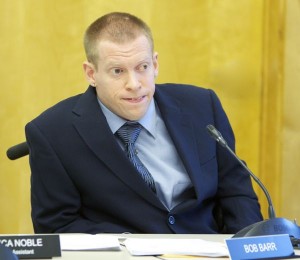

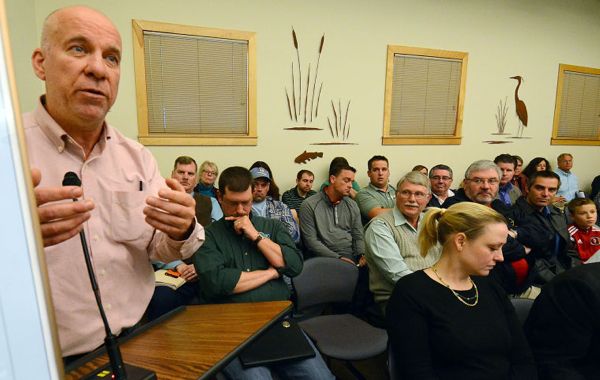
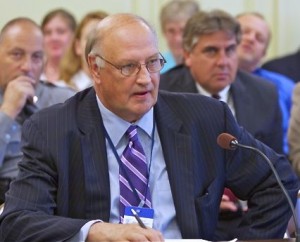
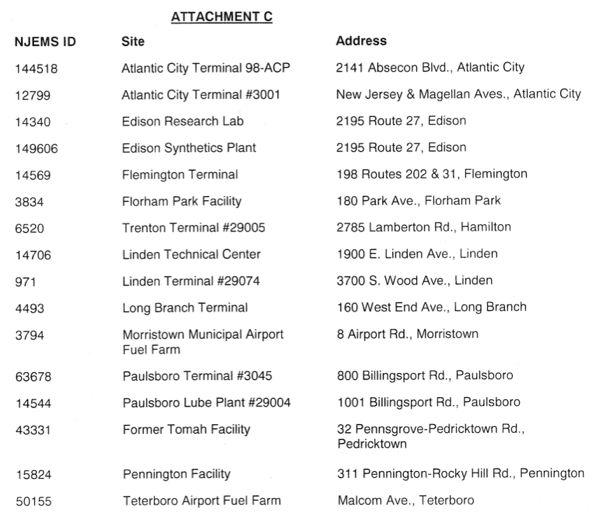

The State broadly waived liability for damages from “any contaminant, media, and/or theory of liability”.This broad waiver will harm their ability to recover damages for surface water contamination to Arthur Kill and Raritan Bay.
The State put huge restrictions on any future surface water claim, including waiting for a federal NRD Assessment before proceeding at the State level, thereby surrounding NJ control to the feds.The agreement also fails to define and include damages for fish, birds, shellfish and other wildlife damaged by Exxon, as well as drinking water resounds that are lost to public use due to pollution.
Groundwater pollution from 860 gas stations is not “de minimus” – DEP is insane to make that claim.